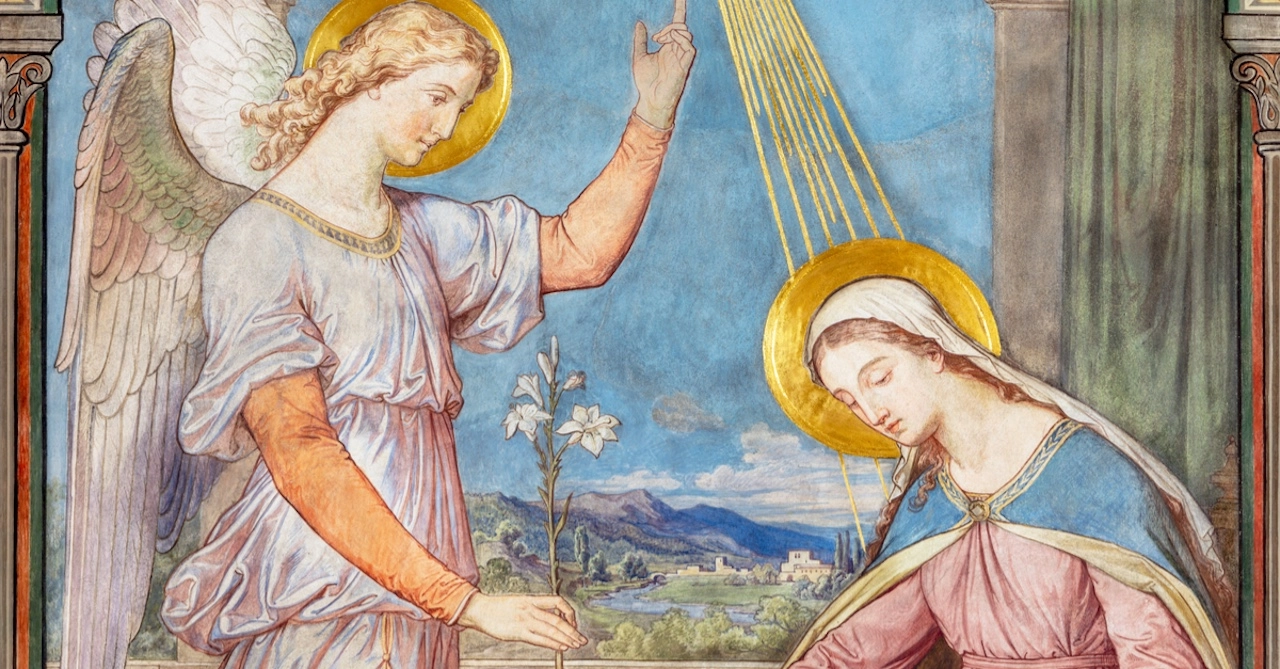The biblical narrative is replete with moments of divine intervention, but few are as pivotal and profound as the Annunciation. This sacred encounter between the young Mary and the angel Gabriel marks the beginning of a journey that would forever alter the course of human history.
I. The Setting: A Humble Maiden in Nazareth
The scene is Nazareth, a small town in Galilee. Mary, a young maiden engaged to Joseph, is introduced to us as someone humble and devout—a character whose life is about to intersect with the divine in an extraordinary way.
II. The Messenger: Angel Gabriel
In the sixth month of Elizabeth's pregnancy (who would later become the mother of John the Baptist), the angel Gabriel is sent by God to Nazareth with a divine message. Gabriel, whose name means "God is my strength," is a celestial messenger often associated with delivering important announcements in biblical lore.
III. The Greeting: "Hail, O Favored One!"
Gabriel's greeting to Mary is both startling and comforting: "Hail, O favored one, the Lord is with you!" These words, charged with celestial grace, reveal the divine favor bestowed upon Mary and foreshadow the extraordinary nature of the message that is to follow.
IV. Mary's Perplexity: "How Can This Be?"
Understandably, Mary is perplexed and troubled by the angelic salutation. The prospect of bearing a child while still a virgin defies the natural order of things. Her query to Gabriel, "How can this be since I am a virgin?" reflects a genuine human response to the incomprehensible nature of the divine plan.
V. The Annunciation of the Incarnation: "The Holy Spirit Will Come Upon You"
In response to Mary's question, Gabriel unveils the divine plan—the miraculous conception of a child by the Holy Spirit. The angel declares, "The Holy Spirit will come upon you, and the power of the Most High will overshadow you; therefore the child to be born will be called holy—the Son of God."
VI. Mary's Fiat: "Let It Be to Me According to Your Word"
In the face of this profound revelation, Mary responds with humility and surrender: "Behold, I am the servant of the Lord; let it be to me according to your word." This act of submission becomes a testament to Mary's faith and willingness to participate in God's redemptive plan for humanity.
VII. The Magnificat: Mary's Song of Praise
Following the Annunciation, Mary visits her relative Elizabeth, and in a burst of spiritual exultation, she delivers the Magnificat—a hymn of praise that echoes through the ages, celebrating the goodness and faithfulness of God.
VIII. Significance: The Incarnation Unveiled
The Annunciation holds profound significance in Christian theology. It unveils the mystery of the Incarnation—the Word becoming flesh. In Mary's "yes" to God's plan, humanity witnesses the convergence of the divine and the human, paving the way for the birth of Jesus Christ.
IX. Artistic Depictions: Capturing the Sacred Moment
Throughout history, the Annunciation has been a recurring theme in art. Renowned painters, from Leonardo da Vinci to Fra Angelico, have sought to capture the sacred moment when the angel Gabriel imparts the news to Mary, often portraying her in an attitude of serene acceptance.
X. Legacy: The Annunciation in Christian Tradition
The Annunciation is commemorated in Christian liturgy, art, and devotion. It stands as a testament to the profound reality that God's redemptive plan unfolds through the cooperation of humble individuals who, like Mary, respond with faith and surrender.
XI. Personal Reflection: Saying "Yes" to the Divine
The Annunciation invites personal reflection on our own willingness to say "yes" to the divine promptings in our lives. Mary's openness to God's plan serves as an inspiration for individuals navigating the complexities of faith and obedience.
XII. The Annunciation's Everlasting Echo
As we delve into the sacred narrative of the Annunciation, we encounter a moment pregnant with divine significance. Mary's courageous acceptance of God's plan reverberates through the corridors of time, inviting each generation to ponder the profound mystery of the Incarnation and to respond with openness to the divine invitations woven into the fabric of our own lives.




